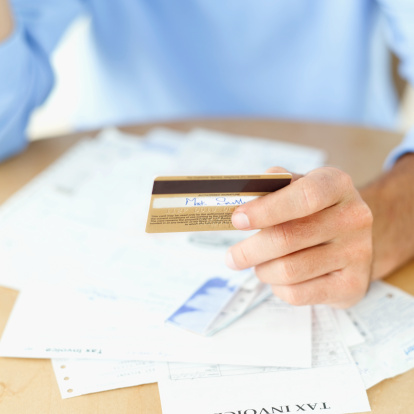Bankruptcy and bank accounts: practical tips
 Fiona Gaskell, partner at Clough Willis, offers advice on how to manage your money
if you are bankrupt.
Fiona Gaskell, partner at Clough Willis, offers advice on how to manage your money
if you are bankrupt.
If you are bankrupt, not being able to use a bank account can cause considerable difficulties.
A standard current account gives the customer access to credit facilities, such as the possibility of going overdrawn. But banks are naturally concerned about allowing an overdraft to someone who is bankrupt. There is also the possibility of bankrupts withdrawing sums of money received after they are made bankrupt, which should properly fall within the bankrupt’s estate.
What happens to a bankrupt’s bank account?
When a bank finds out that someone has been made bankrupt, they will freeze the account in order to preserve whatever funds are in there. Those monies will generally be claimed by the trustee in bankruptcy.
What happens if I have a joint account?
Freezing access can cause particular problems if a bankrupt maintains a joint account with a spouse or partner, as direct debits and standing orders may not be honoured.
This can result in a bankrupt being chased for dishonoured payments, as well as potentially lead to default under credit agreements or mortgage payments, even where the monies coming to make those payments belong to the bankrupt’s spouse or partner.
If you intend to declare yourself bankrupt, or believe that you are at risk of being made bankrupt, it is in everyone’s best interests for your spouse or partner to set up their own account into which their income can be deposited and bills can be paid, to avoid any defaults.
It’s also worth considering setting up a separate account, if your bank provides this option. This will then survive the making of a bankruptcy order and, for example, allow wages to be paid by an employer after bankruptcy.
What type of bank account can I have as a bankrupt?
Though a bank will not allow a bankrupt to maintain a normal current account, it is possible to have a bank account, as long as it is one on that does not allow an overdraft, or the provision of credit.
This will enable the your wages to be paid into a bank account and for cash withdrawals to be made, provided there are sufficient funds. It also allows for electronic payments to be made from the account, again assuming there are sufficient funds available.
The difficulty is often finding a bank that’s willing to offer such an account. Some banks have been more willing than others to offer this facility which, from their point of view, is unlikely to be very profitable. Others have been reluctant to do so, or have encountered difficulties, and have withdrawn completely from this market.
The BBA, the trade association for the UK banking sector, has indicated that it will act to improve access to bank accounts for bankrupts. This has been prompted by changes to the law which mean that if account holders withdraw funds, the banks will be protected from recovery action by trustees if they have not received specific notice that the monies in the bank account were part of the bankrupt’s estate.
This will undoubtedly ease a lot of the difficulties that bankrupts encounter that can result in making highly unsatisfactory and irregular arrangements with third parties (often family and friends) holding monies received by way of wages for the bankrupt, and processing any bills and payments for the bankrupt from their own account.
What about assets before and after discharge?
If you are made bankrupt, any money, property or assets that you have when you are made bankrupt will be available for creditors. For many bankrupts it can come as an unpleasant surprise to learn that any money, property or assets acquired after the bankruptcy may still be available for creditors if they are viewed as ‘after acquired property’.
Acquired property covers money or assets that the bankrupt gains, or becomes entitled to, following the making of the bankruptcy order, but before the bankrupt is discharged from bankruptcy.
As the usual period for automatic discharge from bankruptcy is a year, this is much less of a problem than it used to be, when a bankrupt would remain undischarged for at least 3 years.
Examples of ‘after acquired property’ are:
- lottery winnings
- a gift from a third party
- money or assets gained through an inheritance
Even if you don’t claim your winnings, or receive the money by way of inheritance until after you are discharged from bankruptcy, if you became entitled to that money during the time that you were bankrupt, it’s available to be claimed by a trustee in bankruptcy for the benefit of creditors.
How can I protect my inheritance as a bankrupt?
Though some bankrupts may be philosophical about having to pay something from a large lottery win to their creditors, it tends to be somewhat unpalatable for a bankrupt and their family to find that an inheritance from a parent or grandparent is going to pass out of the family to the bankrupt’s creditors.
You may wish to therefore recommend that any close relative who intends to leave money to you should change their will during the period of bankruptcy. Of course, this risks you being excluded completely, and also relies upon a potential donor to change their will back again once you are discharged. But it is certainly something that should be considered, even if you are reluctant to tell your family about your circumstances.
About the author
Fiona Gaskell is partner at Clough Willis, and specialises in insolvency, property litigation and licensing. Follow @BurySolicitor or visit the website for more information.
